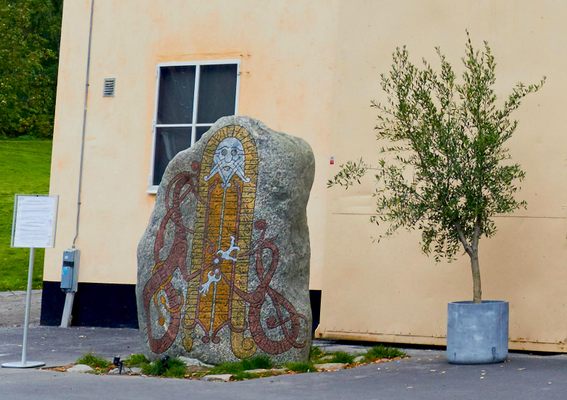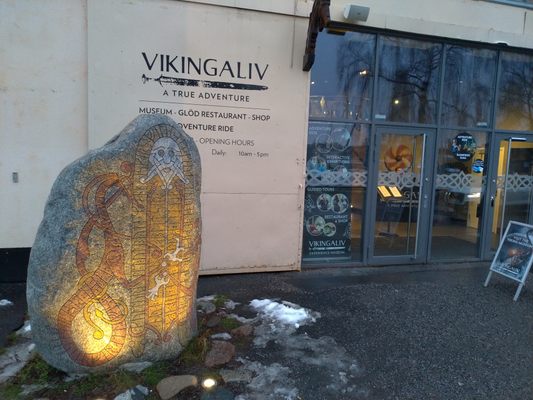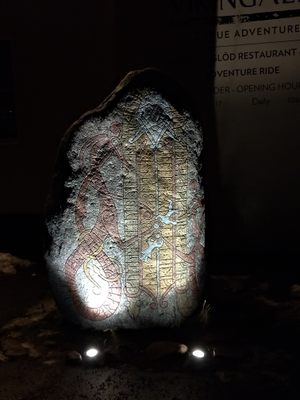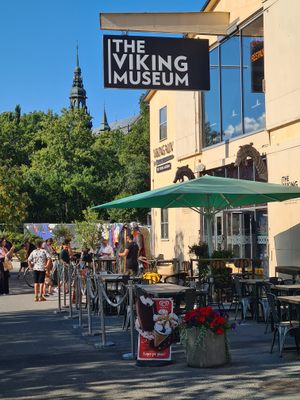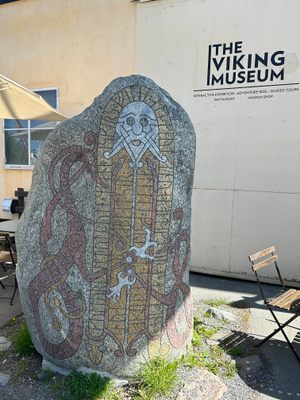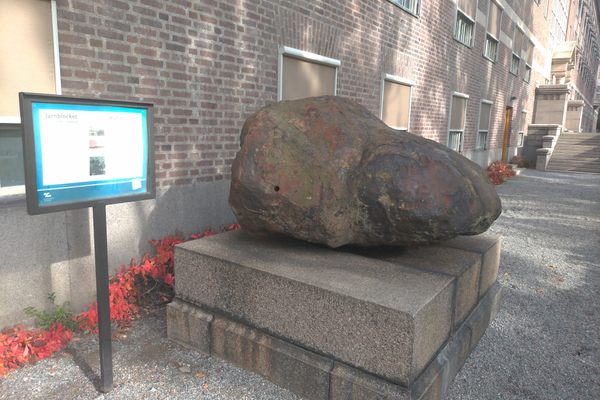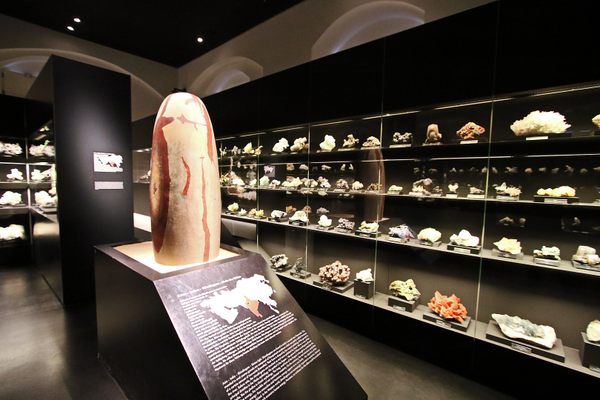About
Sweden is full of Viking runestones made by ancient Swedes now long forgotten. These carved monuments could be erected to celebrate an important achievement or event or as a sort of gravestone memorializing a lost loved one. It is an art that has not been practiced for hundreds of years—or so you might think.
The Vikingaliv runestone was created by a modern-day runemaster using traditional methods, which essentially comes down to hundreds of hours of painstaking chiseling. The large granite stone, which weighs 6 tonnes, is located outside the Vikingaliv museum (roughly meaning "Viking life") in Stockholm.
The museum is close to both the Uppland and Södermanland provinces, which traditionally used different motifs in their runestones. Thus a mix of the two was used for the design of the Vikingaliv stone, so that the style you'll see is completely unique but still recognizable.
The image on the stone depicts two dragons holding a pair of people. The dragons are bound to the stone by various snakes that are knotted around them and a large central serpent. The motif is based on the Runestone U 629, which is thought to depict a long-forgotten saga. This was done in order to connect the museum to the past and spread the lost story in the hopes that someone might recognize it.
The stone was made by Kalle Runristare, a modern-day runemaster who restores and replaces runestones all across Sweden. It was commissioned by the Vikingaliv, a museum dedicated to the life and culture of these ancient seafaring Norsemen. The museum collection includes many historic items and replicas of newer ones, as well as an indoor ride that tells the saga of a Viking woman.
Related Tags
Know Before You Go
The stone is located in front of the Vikingaliv museum in the Östermalm district of Stockholm and is freely accessible.
Community Contributors
Added By
Published
March 27, 2019
